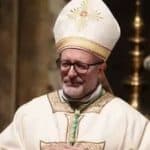Toribio Alfonso de Mogrovejo (1538-1606): finding an identity in multicultural societies in Latin America.
«Jesus came. He didn’t waste the years of his life complaining and always talking about bad times. He cut short. In a very simple way. By starting Christianity. He saved. He didn’t incriminate the world. He saved the world.» (C.Peguy, Veronique) This quotation from Charles Peguy could easily be applied to the extraordinary figure of Toribio Alfonso of Mogrovejo (Mayorga, Spain, 1538 –Zaña, Peru, 1606), second Bishop of Lima, patron of the Bishops of Latin America. He graduated in Law, and he was the head judge of the Inquisition Court of Granada, when, in 1579, Philip II suggested the Pope nominate him as the new Bishop of Lima. Within a few months, he was ordained Deacon, Priest, and then Bishop. Then he left for Peru, where, starting in 1581, he began an immense and fascinating adventure as the pastor of one of the biggest Dioceses in the world stretching from the Pacific Ocean to the Amazonian forest and the inaccessible valleys of the Andes, in a world undergoing change and full of contradictions. The Empire of the Incas had been conquered fifty years before, the Spanish Vice-Royalty of Peru had been consolidated, and the evangelization of the natives was well underway. Toribio “didn’t waste the years of his life”: he got down to work by building the Church. The Third Council of Lima, the Trilingual Catechism (Spanish, Quechua and Aymara), his pastoral visits that took him to all the villages of his vast Dioceses, which he reached by walking over forty thousand kilometres, are the pillars of his great work. He set the foundation for a Christian civilization in which different cultures and traditions were unified in a new identity thanks to faith. Just like St. Francis Xavier, or St. Charles Borromeo, this great missionary indicates to us that, in a multicultural and multiethnic world, Christian faith brings unity and dialogue, along with the passion for spreading the truth of Christ as the answer to the desire for the infinite which constitutes the human heart. In order to pursue this, Toribio became a servant to everyone.
Edited by Andrea Aziani, José Antonio Benito Rodríguez, Gian Battista Bolis, Giovanni Paccosi, Giancorrado Peluso, Francesco Pini, Luis Andrés Villacorta Santamato.












